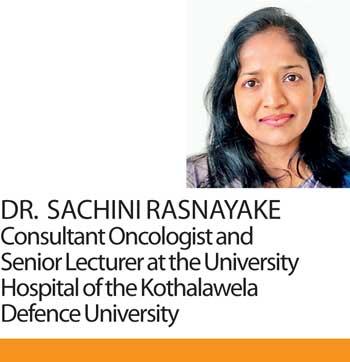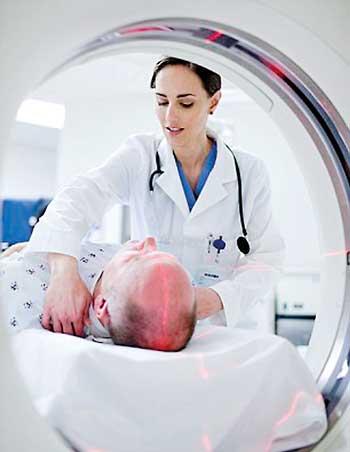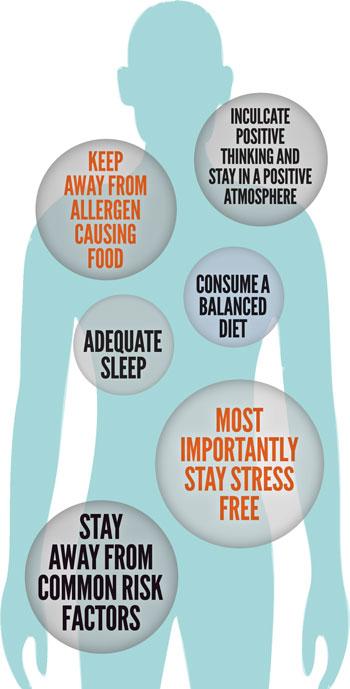Reply To:
Name - Reply Comment
According to WHO, 1 in every 5 men and 1 in every 6 women will develop cancer in their lifetime. In 2018 alone, 18.1 million new cases of cancer were diagnosed globally.
A fter months of feeling unwell, tons of blood work and other tests later, what happens when you hear the words “You’ve got cancer”? Do you see your entire life flash before you, because you think you are now at the jaws of death? Do you feel heart broken and think of the family you’ll leave behind? Is “Oh no, I am going to die soon” the mantra playing in your head? Or would you feel calm thinking it’s just yet another disease and you’ll fight it? Would you think of it just another challenge in life and look forward in how to successfully jump over it? Keeping the immediate thoughts aside, you must be wondering how your life would change now. Would there be dietary changes, would there be lifestyle changes? “Obviously yes, there will be changes.
fter months of feeling unwell, tons of blood work and other tests later, what happens when you hear the words “You’ve got cancer”? Do you see your entire life flash before you, because you think you are now at the jaws of death? Do you feel heart broken and think of the family you’ll leave behind? Is “Oh no, I am going to die soon” the mantra playing in your head? Or would you feel calm thinking it’s just yet another disease and you’ll fight it? Would you think of it just another challenge in life and look forward in how to successfully jump over it? Keeping the immediate thoughts aside, you must be wondering how your life would change now. Would there be dietary changes, would there be lifestyle changes? “Obviously yes, there will be changes.
It is very important that the patient has a positive mind set at all times and that the people around them also has a positive mind set. Do not treat them differently

But it all depends on the way you accept the news and how strongly can control your mind ” said Dr. Sachini Rasnayake, Senior Lecturer at the University Hospital of the Kothalawela Defence University and Consultant Oncologist.
According to her, she stated that it was important that the patient should understand that most cancers are curable and that there are world class treatment options for cancer available in Sri Lanka.
When one is diagnosed with cancer, two factors: stage of cancer and grade (rate of proliferation of the tumour) helps decide what treatment options is best for that particular person and whether the cancer is curable.
She explained that if detected in the first stage, mostly cancers are fully curable. “But some cancers are fully curable even at the 4th stage.” She also went on to explain that the grades are 1, 2 and 3. Grade 1 cancer being that the tumour is spreading at a slow rate and Grade 3 being that the tumour is spreading in an accelerated rate. The stage and the grade is tested via clinical assessments, imagery and through the histology of the tumour cells. So the careful assessment and analysis of the overall patient is very important prior to make the final treatment plan.
What happens after figuring out the stage and grade of cancer?
“The patients will then be advised on their treatment options. Surgery is the best way to take the cancer out when found in very early stages for most of the solid tumours. However chemotherapy and radiotherapy plays major role in cancer cure in advanced stages and for most of hematological malignancies such as leukemias and lymphomas. Currently, many patients tend to opt for immune therapy, which is a targeted method of treatment. This has no side effects and the treatment is specifically targeted at the site of tumour,” explained Dr. Rasnayake adding that immune therapy is tailored to each patient depending on their cancer type and their tumor genetics. The other treatment options are hormonal treatment and targeted therapy which can be used as long term maintenance therapy and some times even for cancer prevention.

She stated that whilst undergoing treatment, doctors would advise the patient if there were any specific lifestyle and dietary modifications. She also debunked a myth that most people believe “Just because you have cancer, it doesn’t mean you can’t hug people or be near little children or pregnant mothers,” adding that only when the patients undergo the Radioactive Iodine treatment, that they are kept in quarantine for a particular period of usually around 3 weeks.
Do’s and the Don’ts once diagnosed
 “It is very important that the patient has a positive mind set at all times and that the people around them also has a positive mind set. Do not treat them differently,” said Dr. Rasnayake. She explained that when the patient has a positive mind set, it gives a boost to the immune system and they are able to successfully respond to treatments.
“It is very important that the patient has a positive mind set at all times and that the people around them also has a positive mind set. Do not treat them differently,” said Dr. Rasnayake. She explained that when the patient has a positive mind set, it gives a boost to the immune system and they are able to successfully respond to treatments.
An example of this is in Pollonaruwa, where an individual with stage 4 cancer is actively engaged in chena cultivation and carries out his daily activities are usual. “Once diagnosed with cancer, patients can still carry out their daily activities. They can follow treatment and continue their work,”
Like Dr. Rasnayake had pointed out, cancer is a challenge in life. Cancer doesn’t shackle anyone or limit anyone from living life to the fullest. It’s one’s attitude towards it that decide if they are going to let cancer suck the life out of them or not.